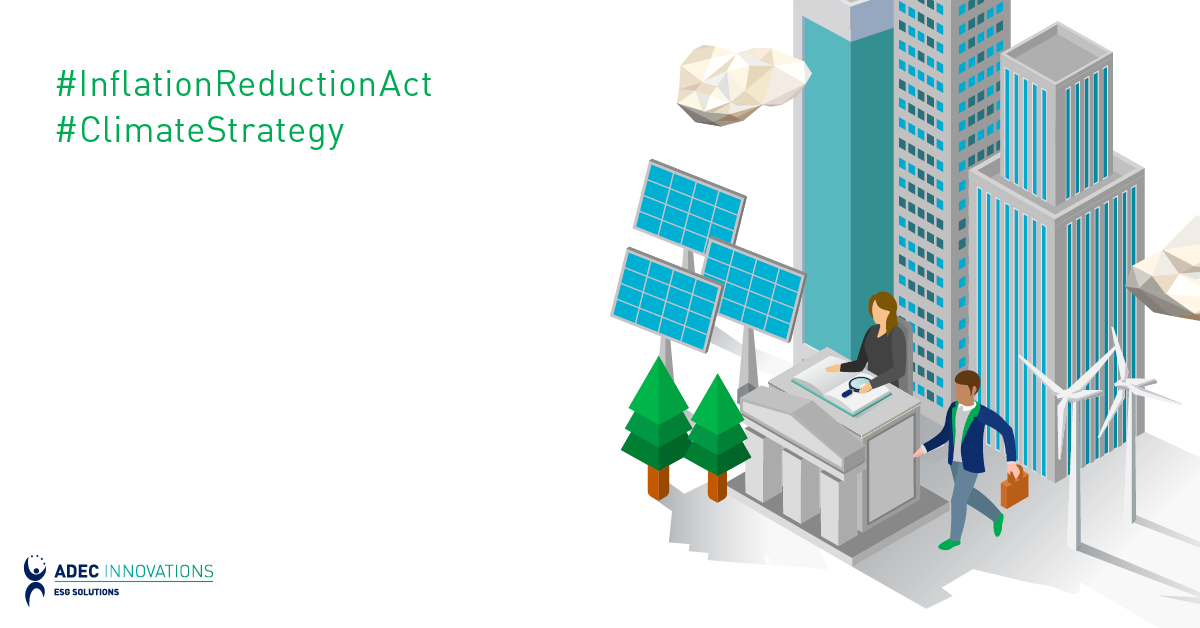 Whether you represent an organization, a community or a government, it is very possible to become a leader in energy efficiency. However, in an effort to do so you must create projects meant to generate more energy using renewable or sustainable resources and to consume less of what is available. This is something that every organization should be involved in if we have any chance of reducing or mitigating our environmental impact on the Earth – land, water and air.
Whether you represent an organization, a community or a government, it is very possible to become a leader in energy efficiency. However, in an effort to do so you must create projects meant to generate more energy using renewable or sustainable resources and to consume less of what is available. This is something that every organization should be involved in if we have any chance of reducing or mitigating our environmental impact on the Earth – land, water and air.
The American Council for an Energy-Efficient Economy (ACEEE) and the Institute for Industrial Productivity (IIP) looked into eight programs in the energy efficiency acquisition from various utilities in the United States and Canada who are providing significant savings for their industrial clients. Such programs are responsible for postponing or eliminating the need for new investments into ways and means for transmitting or generating energy. The report entitled Energy Efficiency Resource Acquisition Program Models in North America discusses in detail these programs as a “predictable and reliable source for meeting existing and future energy demands”.
During the 2013 Energy Efficient Global Forum in Washington, D.C., USA, a panel of renowned experts from Australia, the European Union, Mexico, and the United Arab Emirates discussed how it is possible for countries or regions with diverse socio-cultural and economic standards, to find ways to become energy efficient economies and reduce greenhouse gas emissions in the process. The discussion was summarized into four steps by Gabrielle Kulper, the Senior Advisor for Climate Change, Energy and Environment from the Office of the Australian Prime Minister.
The Steps:
- Optimize Information – People tend to take energy for granted because they do not see the impact it causes directly. Businesses, communities and governments must educate their constituents about energy efficiency, management and conservation.
- Reform Energy Prices – Energy prices must reflect the full costs (no hidden charges) and be made available to the public.
- Build Institutions – With the capacity to do energy management inclusive of energy efficiency programs, beef up spending on these programs and do related R&D.
- Strengthen Governance – Enforce codes and standards through strong leadership to reach targets.

On a smaller scale, Boston College has proven that it is possible to achieve huge savings if changes or reforms, like the ones enumerated above, are incorporated into an organization. For example, to be more efficient in consuming electricity to illuminate their campus’ 1.4 million square feet, Boston College has upgraded their lighting system. The upgrades included motion sensing, daylight harvesting, energy star bulbs and ballast replacements; all of which have saved the university more than 800,000 kWh.
Thus, energy efficiency, whether on a large or small scale, is possible. The report, the panel discussion and what Boston College did are all proof that it is possible to drum up plans to save energy and have positive results in return. The important thing is to put these plans into action toward reducing energy consumption and increasing energy conservation towards successful energy management.
FirstCarbon Solutions (FCS) has a complete array of energy management services that suit the varying needs of companies, industries and governments to attain their energy goals. With energy specialists and management consultants ready to share their expertise, FCS provides guidance and support that companies need to improve their bottom line value in an energy-conscious world. Click on the button below for a free consultation.





